News & Media
Chancellor pronounces on femicide, xenophobia, lingering racial tensions and more
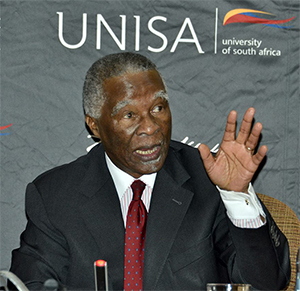
Chancellor Mbeki weighed in on a number of burning issues
Unisa staff and students, media representatives and members of the public attended the bi-annual interactive session between the Chancellor of Unisa, former President Thabo Mbeki, and students of the Thabo Mbeki African Leadership Institute (TMALI) on 15 August 2019.
The Vice-Principal: Research, Postgraduate Studies, Innovation and Commercialisation, Prof Thenjiwe Meyiwa, opened the session and welcomed the Chancellor and guests.
The audience asked former President Mbeki questions on various topics, such as his view on the ministry of women in South Africa to deal with issues of gender, including femicide, allegations that "monopoly capital" bought and owns the president of the ANC and the Republic of South Africa, reviving a passion for Africa, and the use of African language philosophies by universities.
In addition, he was questioned on current affairs such as immigration and public violence by traders in Johannesburg, why Afrikaners are arming themselves, why some African leaders refuse to leave office and have to "be forced out", whether western/liberal democracy works for Africa, and whether a five-year period is enough for elected governments to effect change.
Former President Mbeki, in response, said that he believed that there was no need for a separate ministry of women and that the president or a function in the president's office is best placed to lead on women and gender mainstreaming issues as its impact will immediately be across government.
He further said the challenge with femicide might be linked to ineffective sentencing by courts: sentencing for crimes against women and children needs to send a strong message to the community that such acts against women and children are intolerable.
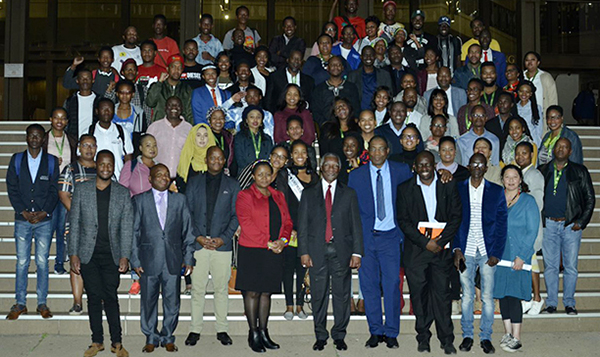
Chancellor Mbeki (centre) and session attendees
On the question of Afrikaners arming themselves, Mbeki said that apart from law enforcement agencies dealing with the issue of law and order, much political work needs to be done to eradicate the type of thinking and behaviour which speaks to the lingering racial tensions and systematic racism. He also lamented the unfortunate rise of tribalism among black South Africans.
On recent attacks against immigrants, Mbeki reflected on the history of the Alexandra township in Johannesburg as always having had a mix of African population groups, including South Africans, Mozambicans, Malawians and Zimbabweans. This cosmopolitan community has for decades been living in harmony. He reminded the audience that the ANC tradition historically had a Pan-African outlook that embraced migrants and that a level of consciousness is needed to recapture this Pan-Africanism.
The Chancellor argued that more work was needed to ensure the development and teaching of indigenous languages by universities. Students and academics musk ask questions about the collapse of the African languages departments at many universities. He also said that universities' curricula should include 4IR as subject matter so that the students who graduate are ready to deal with the new challenges.
In concluding the interactive session, the former president said the five-year electoral period was long enough to implement policies, which remains a significant challenge on the continent. The continent does not lack policies in terms of transformation; the problem is implementation. TMALI was set up to train thought leaders familiar with the continent who will be able to intervene and bring about the necessary change.
* By Tshepo Neito, Marketing and Communications Specialist, TMALI
Publish date: 2019-09-10 00:00:00.0


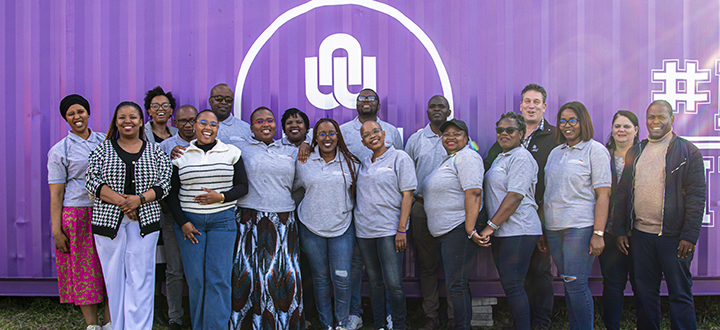 A giant leap for student success and retention
A giant leap for student success and retention
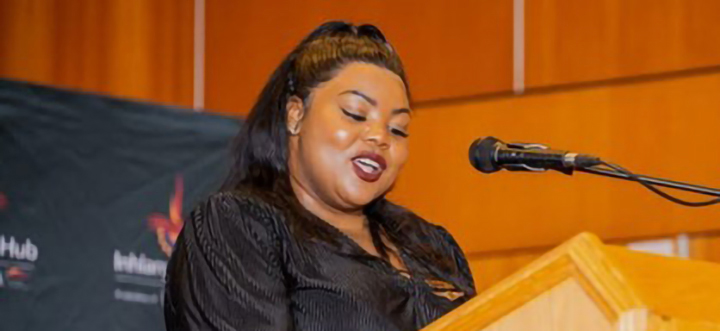 SWEEP: Where women entrepreneurs take the lead
SWEEP: Where women entrepreneurs take the lead
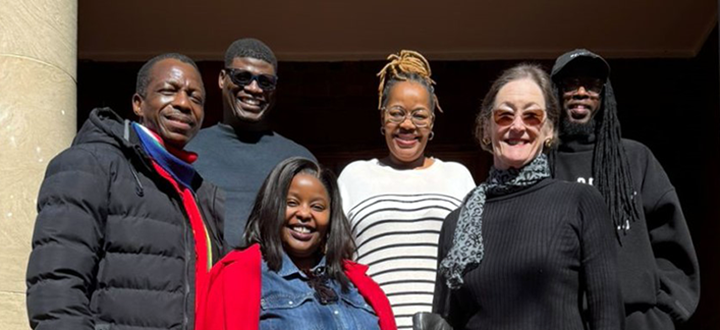 A sense of belonging and excellence nurtured through collaboration
A sense of belonging and excellence nurtured through collaboration
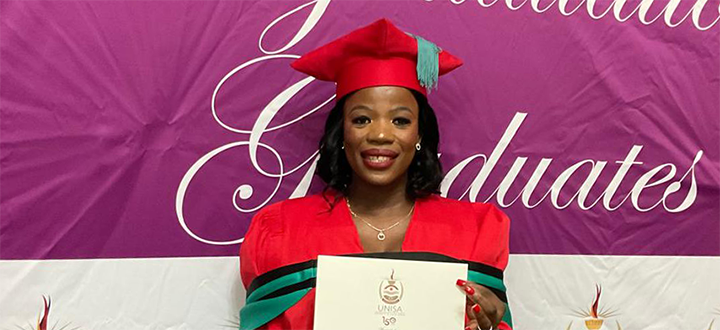 Wielding her Unisa PhD, Botswana educator champions early childhood development
Wielding her Unisa PhD, Botswana educator champions early childhood development
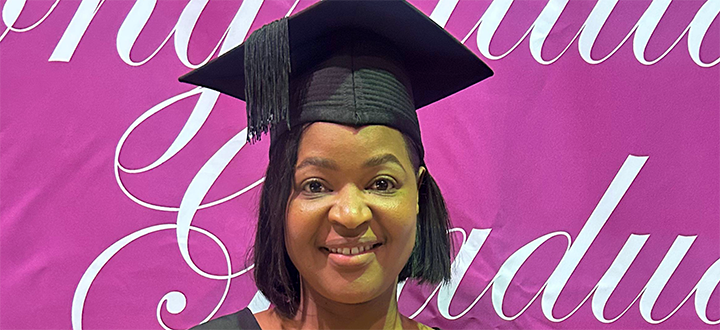 Proud Unisa alumna bridges distance and fuels career growth
Proud Unisa alumna bridges distance and fuels career growth